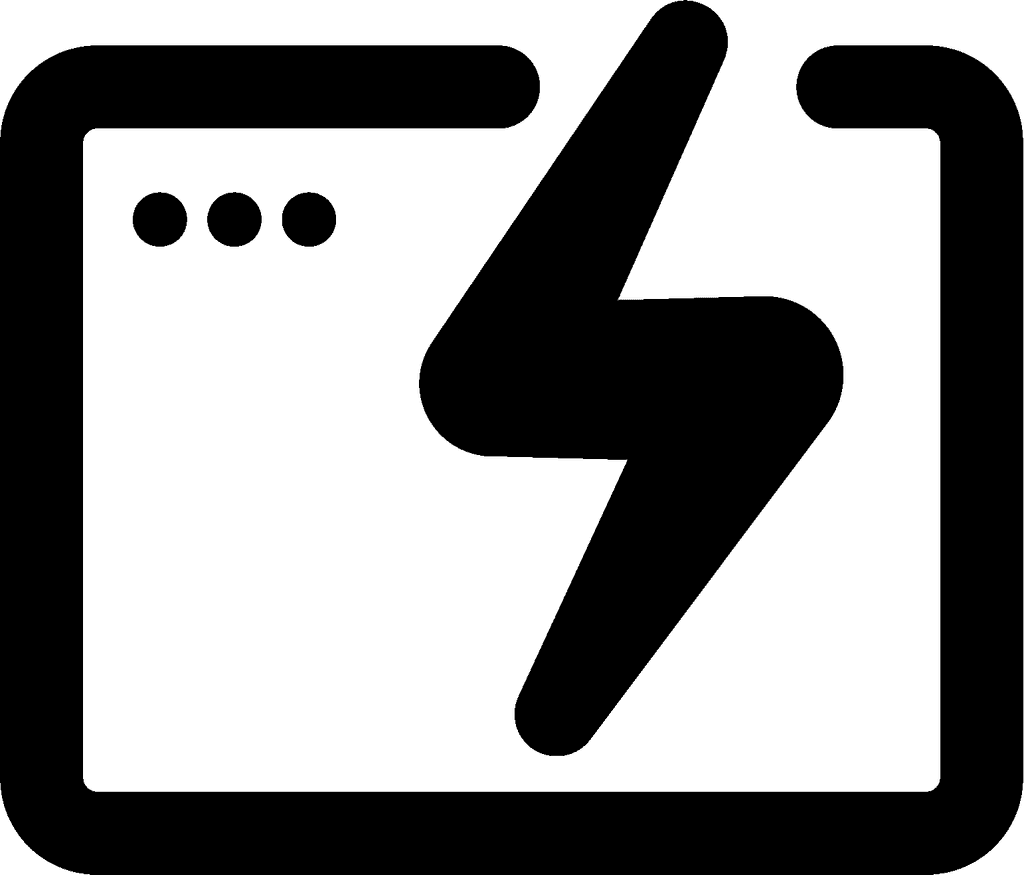Best IT Ticket Management Software: Top Solutions for Efficient Support
Effective IT ticket management is crucial for organizations to streamline their support processes and enhance customer satisfaction. The right software can make a significant difference in how efficiently IT teams handle and resolve issues.
The best IT ticket management software combines robust features like automated ticket routing, prioritization, and reporting with an intuitive user interface. Top solutions often include customizable workflows, integration capabilities with other IT tools, and real-time analytics to help teams optimize their performance.
Choosing the ideal ticket management system requires careful consideration of an organization's specific needs, budget, and existing tech stack. This guide explores key factors to evaluate when selecting IT ticket management software and highlights some of the leading options available in the market today.

Understanding IT Ticket Management Software
IT ticket management software streamlines support processes and enhances customer service. It organizes, tracks, and resolves user issues efficiently.
Defining Ticket Management
Ticket management refers to the system used to handle customer inquiries, complaints, and support requests. It involves creating, assigning, and resolving tickets. Each ticket represents a specific issue or task.
IT departments use this software to prioritize and categorize incoming requests. It helps track the status of each ticket from creation to resolution. The system often includes features like ticket assignment, escalation, and reporting.
Effective ticket management ensures no request falls through the cracks. It provides a centralized platform for communication between support staff and users. This leads to faster problem resolution and improved customer satisfaction.
The Role of Automation in Ticketing
Automation plays a crucial role in modern ticket management systems. It reduces manual work and speeds up response times. Automated processes handle routine tasks, allowing support teams to focus on complex issues.
Key automation features include:
Automatic ticket creation from emails or web forms
Intelligent routing of tickets to appropriate staff
Automated responses for common inquiries
Escalation of overdue tickets
These automated functions streamline workflows and improve efficiency. They help maintain consistent service levels and reduce human error. Automation also enables 24/7 support capabilities, even with limited staff.
Advanced systems use AI to categorize and prioritize tickets automatically. This ensures urgent issues receive immediate attention. Automation in ticketing leads to faster resolutions and higher customer satisfaction rates.
Key Features to Look For
Effective IT ticket management software should streamline support processes and enhance team productivity. The following features are crucial for optimal performance and user satisfaction.
Multi-Channel Support
Modern IT support requires flexibility in communication channels. Top-tier ticket management systems offer integration with email, phone, and social media platforms. This allows users to submit tickets through their preferred method.
Some solutions provide chatbots and AI-powered assistants to handle basic inquiries. These tools can quickly resolve simple issues without human intervention.
Mobile apps enable on-the-go ticket management for both support staff and end-users. This feature is particularly valuable for remote teams or organizations with field technicians.
Integration Capabilities
Seamless integration with existing tools and systems is essential for efficient workflows. Leading ticket management software connects with popular collaboration platforms, CRM systems, and project management tools.
API access allows for custom integrations with specialized software. This flexibility ensures the ticketing system fits into an organization's unique tech stack.
Integration with knowledge bases and documentation systems helps support agents quickly access relevant information. This feature can significantly reduce resolution times.
Self-Service Options
Empowering users to solve their own issues can greatly reduce ticket volume. Robust self-service portals include searchable knowledge bases, FAQs, and troubleshooting guides.
AI-powered chatbots can guide users through common problems, offering step-by-step solutions. These bots learn from past interactions to improve their responses over time.
Community forums allow users to share solutions and discuss common issues. This peer-to-peer support can be invaluable for handling niche or complex problems.
Collaboration and Productivity Tools
Effective ticket management requires smooth teamwork among support staff. Shared inboxes enable multiple agents to work on tickets collaboratively, ensuring no issue falls through the cracks.
Internal chat features facilitate quick communication between team members. This can be crucial for escalating complex issues or seeking expert advice.
Automated workflows help prioritize and assign tickets based on predefined rules. This ensures critical issues receive prompt attention and balances workloads across the team.
Reporting tools provide insights into team performance and common issues. These analytics help managers optimize support processes and identify areas for improvement.
Top Ticket Management Solutions
Several leading IT ticket management platforms offer robust features to streamline support workflows. These solutions provide efficient tools for tracking, prioritizing, and resolving customer issues.
Zendesk for Comprehensive Service
Zendesk stands out as a versatile help desk software solution. It offers a unified ticketing system that centralizes customer interactions across multiple channels. The platform's customizable interface allows teams to tailor workflows to their specific needs.
Key features include:
Automated ticket routing
Self-service knowledge base
Real-time analytics and reporting
Integration with third-party apps
Zendesk's AI-powered tools assist agents in resolving tickets faster. The software also provides robust customer satisfaction surveys to measure support quality.
Freshdesk: A Fresh Approach to Customer Support
Freshdesk delivers a user-friendly ticketing system with a focus on simplicity and efficiency. The platform excels in organizing and prioritizing support requests from various sources.
Notable Freshdesk capabilities include:
Collision detection to prevent duplicate work
Automated ticket dispatch
Team collaboration tools
Multi-channel support
Freshdesk's gamification features encourage agent productivity through friendly competition. The software also offers a mobile app for on-the-go ticket management.
Jira Service Management for IT Teams
Jira Service Management caters specifically to IT support teams. It combines robust incident management with ITSM best practices.
Key strengths of Jira include:
Customizable service desk portal
Integrated asset and configuration management
Change management workflows
SLA tracking and reporting
Jira's integration with other Atlassian tools enhances collaboration between IT and development teams. The platform also supports ITIL processes for enterprise-level service delivery.
HubSpot for Integrated CRM Support
HubSpot's ticketing system seamlessly integrates with its CRM platform. This integration provides a holistic view of customer interactions and support history.
HubSpot's ticket management features include:
Conversation inbox for centralized communication
Ticket automation and routing rules
Customer feedback surveys
Reporting dashboards
The platform's CRM integration allows support teams to access detailed customer information directly from tickets. This context helps agents provide more personalized service.
Zoho Desk for Scalability
Zoho Desk offers a scalable solution suitable for businesses of all sizes. The platform emphasizes context-aware support to enhance ticket resolution efficiency.
Zoho Desk's standout features include:
AI-powered agent assist
Time tracking for support tasks
Customizable help center
Multi-brand support
The software's Zia AI assistant helps predict ticket sentiment and suggests relevant solutions. Zoho Desk also provides robust automation capabilities to streamline repetitive tasks.
Enhancing Customer Support Through Analytics
Analytics and reporting tools provide valuable insights to improve customer service and support processes. These capabilities allow organizations to make data-driven decisions and boost customer satisfaction.
The Impact of Reporting on Decision Making
Reports generated from IT ticket management software offer crucial data for informed decision-making. Key metrics like average resolution time, first contact resolution rate, and ticket volume trends help identify areas for improvement.
By analyzing these reports, support teams can:
Allocate resources more effectively
Identify common issues and create knowledge base articles
Optimize workflow processes
Visualizations such as charts and graphs make it easier to spot patterns and trends. This allows managers to quickly identify bottlenecks and take corrective action.
Leveraging Data for Customer Satisfaction
Analytics tools in IT ticket management systems enable organizations to measure and improve customer satisfaction. By tracking metrics like customer feedback scores and response times, support teams can pinpoint areas needing attention.
Data-driven insights help:
Personalize customer interactions
Predict and prevent potential issues
Tailor support offerings to customer needs
Machine learning algorithms can analyze historical data to suggest solutions, reducing resolution times. This proactive approach leads to higher customer satisfaction and loyalty.
Self-service portals with analytics-driven knowledge bases empower customers to find answers quickly. This reduces ticket volume and improves overall support efficiency.
Navigating Pricing and Trial Offers
Choosing the right IT ticket management software involves carefully evaluating pricing structures and trial offers. These factors play a crucial role in determining the best fit for an organization's needs and budget.
Understanding Different Pricing Structures
Many IT ticket management software providers offer tiered pricing models. These tiers typically range from basic plans for small teams to enterprise-level solutions for large organizations.
Per-user pricing is common, allowing companies to scale costs as their team grows. Some vendors offer flat-rate pricing for unlimited users, which can be cost-effective for larger teams.
Feature-based pricing is another approach, where advanced functionalities come at a premium. This model lets businesses pay only for the features they need.
Cloud-based solutions often use subscription models, billed monthly or annually. On-premises software may have one-time licensing fees with optional ongoing support costs.
Evaluating Free Trial Periods
Free trials provide hands-on experience with IT ticket management software before committing to a purchase. Trial periods typically range from 14 to 30 days, giving teams time to test key features.
During the trial, it's important to involve all potential users and simulate real-world scenarios. This helps assess the software's efficiency and user-friendliness in actual work environments.
Some vendors offer limited-feature trials, while others provide full access to premium features. Understanding these differences is crucial for a comprehensive evaluation.
Extended trials may be available upon request, allowing for more thorough testing. It's advisable to negotiate trial terms if more time is needed to make an informed decision.
Best Practices for IT Ticket Management
Effective IT ticket management relies on streamlined processes, robust security measures, and adherence to industry standards. Implementing best practices enhances efficiency and ensures compliance while maximizing productivity.
Setting up Efficient Workflows
Prioritize tickets based on urgency and impact to allocate resources effectively. Implement a clear escalation process for complex issues that require higher-level support. Utilize automation tools to route tickets to appropriate teams, reducing response times.
Establish service level agreements (SLAs) to set expectations for resolution timeframes. Train staff on proper ticket documentation, including clear problem descriptions and troubleshooting steps taken.
Create a knowledge base of common issues and solutions to empower users and technicians. Regularly review and update this resource to reflect new technologies and emerging challenges.
Implement a feedback loop to gather insights from resolved tickets, identifying trends and areas for improvement. Use these insights to refine workflows and enhance IT service delivery.
Maintaining Security and Compliance
Implement role-based access controls to ensure only authorized personnel can view and modify sensitive ticket information. Encrypt data in transit and at rest to protect confidential details within support tickets.
Regularly audit ticket management systems to verify compliance with industry regulations such as GDPR or HIPAA. Establish retention policies for ticket data, balancing legal requirements with data minimization principles.
Integrate ticket management systems with identity and access management solutions for seamless authentication. Implement multi-factor authentication for added security when accessing the ticketing platform.
Train staff on security best practices, including proper handling of sensitive information in tickets. Conduct periodic security assessments to identify and address vulnerabilities in the ticketing system.
Frequently Asked Questions
IT ticket management software is essential for efficient help desk operations. The right solution can streamline workflows, improve response times, and enhance overall support quality.
What are the key features to look for in IT ticket management software?
Key features include ticket creation and tracking, automated routing, and prioritization. Customizable workflows allow teams to adapt the software to their processes. Reporting and analytics help managers identify trends and areas for improvement.
How does IT ticket management software improve help desk support efficiency?
IT ticket management software centralizes support requests, reducing response times. It automates ticket assignment and escalation, ensuring issues are handled promptly. The software also provides a knowledge base for quick problem resolution.
Can you recommend a cost-effective ticketing system suitable for small businesses?
Freshdesk offers an affordable solution for small businesses. It provides essential features like ticket management and automation at a competitive price point. Zoho Desk is another budget-friendly option with scalable pricing plans.
What are some widely used ticketing tools for IT support teams?
ServiceNow, Zendesk, and Jira Service Management are popular choices for IT support teams. These platforms offer robust features, extensive integrations, and scalability to meet the needs of various organization sizes.
How do the top help desk software options compare in terms of user satisfaction?
User satisfaction often correlates with ease of use and feature set. Zendesk consistently receives high marks for its intuitive interface. ServiceNow is praised for its comprehensive capabilities, while Freshdesk is appreciated for its user-friendly design.
What are some examples of IT ticketing systems that integrate well with other business tools?
Zendesk integrates seamlessly with CRM systems like Salesforce. Jira Service Management works well with other Atlassian products. ServiceNow offers extensive integration options with various enterprise applications, enhancing workflow efficiency across departments.

Build a more powerful help desk with Risotto
Minimize Tickets and Maximize Efficiency
Simplify IAM and Strengthen Security
Transform Slack into a help desk for every department
Schedule your free demo



